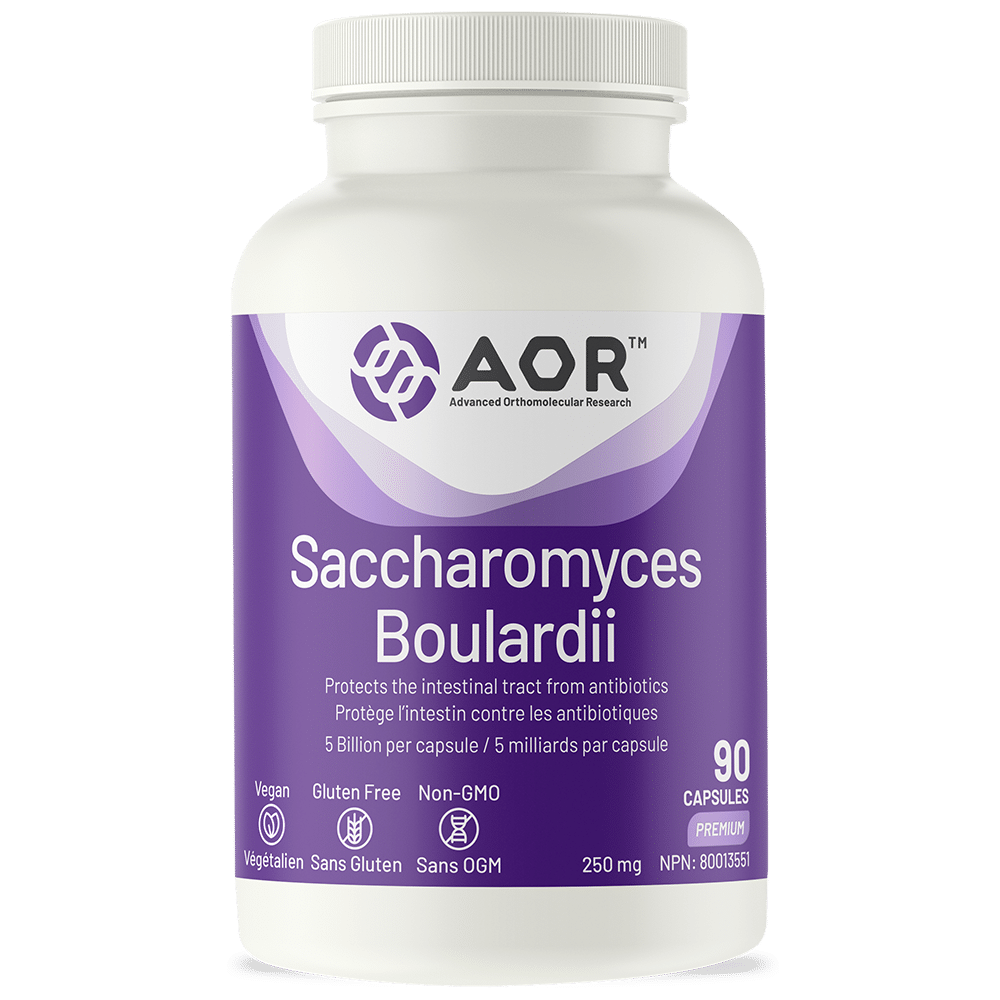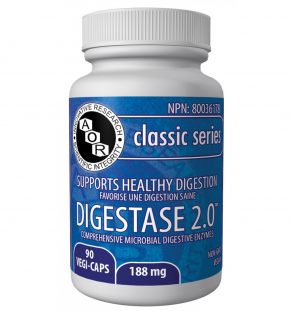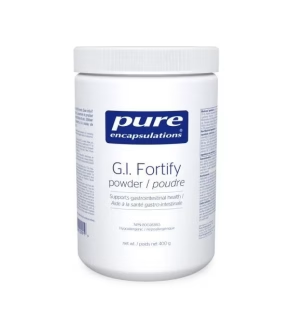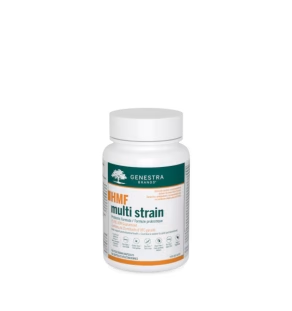Description
A NATURAL SOLUTION FOR GASTROINTESTINAL DISORDERS
- Helps relieve antibiotic-associated diarrhea
- Reduces the symptoms of Traveler’s diarrhea
- Helps minimize intestinal complications
- Helps prevent gastrointestinal inflammation
Saccharomyces boulardii is a non-pathogenic yeast that has been shown to reduce the risk of antibiotic-associated diarrhea.
90 Vegi-Caps
Serving Size: 1 Capsule
Saccharomyces boulardi 250 mg
(5 billion organisms)
Key Feature:
5 Billion per capsule
Suggested Use:
Take 3 capsules per day in divided doses between meals.
Cautions: Discontinue use and consult a health care practitioner if symptoms of digestive upset (e.g. diarrhea) occur, worsen, or persist beyond 3 days. Consult a health care practitioner if you are experiencing nausea, fever, vomiting, bloody diarrhea or severe abdominal pain. Do not use if you have an immune-compromised condition (e.g. AIDS, lymphoma, patients undergoing long-term corticosteroid treatment).
Pregnancy / Nursing
Consult a health care practitioner
Source:
Biological Fermentation
Main Indications:
- Traveller’s diarrhoea
- Antibiotic-associated diarrhea
- Clostridium difficile
- Dysbiosis
Complementary Products: L-Glutamine, Probiotic 3, Solufibre
Gastrointestinal Grievances
Gastrointestinal complications are a side effect of many health conditions. The use of antibiotic treatment can destroy healthy bacteria in the gut, causing intestinal complications and allowing colonization by pathogens which can cause diarrhea and other forms of intestinal discomfort. This is a major problem for many hospitalized patients. Diarrhea is also a problem when travelers are exposed to pathogens that they are not used to.
A Helpful Yeast
Saccharomyces boulardii is a non-pathogenic yeast which provides a probiotic solution to deal with diarrhea and other intestinal complications. The yeast can prevent gastrointestinal inflammation caused by infections, which cause diarrhea. Saccharomyces also enhances the protective functions of the immune system. It has been shown to be clinically effective in dealing with symptoms of antibiotic-associated diarrhea, Clostridium difficile disease (which is particularly problematic in hospitals) and symptoms of Traveler’s diarrhea.
Safe and Effective Relief
Intestinal disorders are a miserable problem for many people, particularly those who are recovering from antibiotic treatment, or traveling in foreign countries. Saccharomyces boulardii provides a natural, safe solution to deal with gastrointestinal complaints without creating further side effects.
Antibiotics & C. difficile
Saccharomyces boulardii is a non-pathogenic, non-colonizing species of yeast that is clinically recognized for its effectiveness in contending with the symptoms of antibiotic-associated diarrhea (AAD) and Clostridium difficile disease (CDD), which is also incited by antibiotics. CDD is a leading cause of nosocomial outbreaks of diarrhea and colitis, and Saccharomyces boulardii is one of the most widely used and highly regarded probiotics for the treatment of symptoms associated with both AAD and CDD.
How It Works
While the precise mechanism of action for Saccharomyces boulardii remains the subject of conjecture, there are three basic types of explanations – or a combination thereof. The first involves the ability of Saccharomyces boulardii to prevent gastrointestinal inflammation by interfering with the various pathogens that bind to gastrointestinal cells. The second is based on Saccharomyces boulardii providing an enhancing effect for certain protective proteins of the immune system whose role is to protect the body from such pathogens. The third explanation is that Saccharomyces boulardii actually competes with pathogens for receptor sites on the cells of the intestinal walls.
Diarrhea Related to Antibiotics & C. difficile
The use of antibiotics can destroy friendly flora that is essential for the maintenance of optimal intestinal health. Therefore, antiobiotic use can result in an imbalance of naturally occurring yeast and bacteria that would normally be kept in check by this friendly flora. This imbalance can lead to diarrhea. Clostridium difficile is such a bacterium, and is (understandably) extremely difficult to treat with more antibiotics. In one double-blind, placebo-controlled study of 151 patients who underwent antibiotic therapy, the rate of patients suffering from antibiotic-associated diarrhea was almost 6 1/2 times higher in the placebo group than in the Saccharomyces boulardii group.
Traveler’s Diarrhea
There is a wealth of other human studies providing testimony to the efficacy of Saccharomyces boulardii against various forms of diarrhea, including Traveler’s Diarrhea or TD. TD is a major concern for visitors to foreign nations, especially ones where the food and climate are unfamiliar and/or the socioeconomic and hygiene levels are low. One recent clinical review cited Saccharomyces boulardii as among the most effective probiotics in treating the symptoms of Traveler’s Diarrhea (TD). The largest placebo-controlled study of Saccharomyces boulardii ever conducted specifically examined its effects on TD. The double-blind study examined 3,000 Austrians who took either a placebo, 250 or 1000 mg of Saccharomyces boulardii while they traveled abroad, particularly to North Africa and the near East where recorded incidents of TD were highest. The results showed that those using Saccharomyces boulardii suffered ‘significantly fewer’ cases of diarrhea than those who took the placebo, and that the beneficial results were dose-dependent.
Acute Diarrhea in Children
Recent studies have examined the efficacy of Saccharomyces boulardii in treating acute diarrhea in children. A recent review of five clinical trials involving a total of 619 otherwise healthy infants and children with acute gastroenteritis revealed that Saccharomyces boulardii ‘significantly reduced’ both the risk and the duration of diarrhea.
*Prices and product availability are subject to change without notice. All specials and promotions limited to stock on hand.
*These statements have not been evaluated by the Food and Drug Administration. These products are not intended to diagnose, treat, cure, or prevent any disease.






